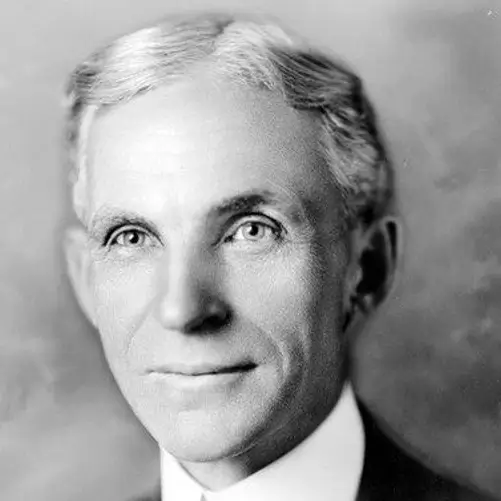Do you believe your intelligence and abilities are set by your destiny, or do you see them as something you can grow and improve?
If you lean towards the second option, you’re already on the path to a growth mindset! This powerful way of thinking helps you embrace challenges, see failures as learning opportunities, and persevere in the face of obstacles.
In this article, you’ll discover:
- The core characteristics that define a growth mindset
- Why having a growth mindset is essential for success
- The difference between a growth mindset and a fixed mindset
- Practical tips to develop a stronger growth mindset
Let’s get started!
10 Characteristics of Growth Mindset
So, what exactly is a growth mindset? People with a growth mindset believe that their talents, intelligence, and abilities can be developed through hard work, dedication, and the right strategies. They don’t see limits on their potential.

Now, what are the characteristics of a growth mindset? Let’s explore ten of the defining growth mindset traits:
1. Embracing Challenges
People with a growth mindset see challenges as exciting opportunities to learn and grow. They don’t shy away from difficult tasks or situations where there’s a chance of failure.
Instead, they tackle them head-on, knowing that even if they don’t succeed immediately, they’ll gain valuable experience they can use in the future.
Example: A student with a growth mindset might volunteer to take on a particularly tough math problem, even if they’re not sure how to solve it. They know the struggle will help them understand the concept better in the long run.
2. Persisting Through Setbacks
People with a growth mindset don’t give up easily. When they encounter setbacks or failures, they see them as temporary roadblocks rather than permanent dead ends. They analyze what went wrong, learn from their mistakes, and try again with a new approach.
Example: An entrepreneur with a growth mindset might have several business ideas fail before finding one that succeeds. Instead of getting discouraged, they use each failed attempt as a learning experience to refine their strategies for future ventures.
"The only thing that stands between you and your dream is the will to try and the belief that it is actually possible."
 Joel Brown
Joel Brown 3. Seeing Effort as the Path to Mastery
People with a growth mindset believe that hard work and dedication are the keys to success, not innate talent. They understand that even the most naturally gifted individuals need to put in the effort to develop their skills and reach their potential.
They aren’t afraid of the hard work required for improvement.
Example: A musician with a growth mindset might spend hours practicing every day, knowing that consistent effort will lead to greater skill and mastery of their instrument.
4. Learning from Criticism
People with a growth mindset welcome feedback, even when it’s critical. They see criticism as an opportunity to identify areas where they can improve. Instead of getting defensive or taking criticism personally, they actively seek out feedback to help them grow.
Example: A writer with a growth mindset might share their work with a mentor or editor, specifically asking for constructive criticism to strengthen their writing skills.
5. Finding Inspiration in the Success of Others
People with a growth mindset don’t feel threatened by the achievements of others. Instead, they’re inspired by them! They see successful people as proof that it’s possible to achieve great things through hard work and determination.
They might study the strategies of those who have succeeded to model their own path.

Example: An athlete with a growth mindset might be motivated by the success of a top athlete in their sport, using it as fuel to train harder and push themselves further.
6. Focusing on Continuous Improvement
People with a growth mindset are always looking for ways to learn and grow. They don’t believe in the concept of “good enough.” Instead, they’re constantly setting new goals for themselves, seeking out knowledge, and refining their skills.
They believe there’s always room for improvement.
Example: A software developer with a growth mindset might take online courses, attend workshops, or experiment with new technologies to stay on the cutting edge of their field.
7. Believing Intelligence Can Be Developed
People with a growth mindset reject the notion that intelligence is fixed. They understand that intelligence can be cultivated through effort, learning experiences, and the right strategies.
They know that with dedication, they can become smarter and improve their abilities.
"Whether you think you can, or you think you can’t – you’re right."
 Henry Ford
Henry Ford Example: A student with a growth mindset might embrace challenging subjects. They might work with a tutor or seek additional resources not because they are struggling but because they believe it’ll help expand their knowledge base and intelligence overall.
8. Celebrating Growth
People with a growth mindset focus on progress rather than perfection. They celebrate small wins and milestones along the way as they work towards their goals.
This helps them stay motivated and acknowledges their hard work along the path to bigger accomplishments.
Example: A person with a growth mindset learning a new language might celebrate when they master a new tense, can have a simple conversation, or successfully understand a song.
9. Valuing the Process Over the Outcome
While people with a growth mindset definitely set goals and strive for achievement, they place a high value on the journey itself.
They recognize that the learning, growth, and self-improvement that happen along the way are just as important as reaching the final destination – sometimes even more so!
Example: A runner with a growth mindset might primarily train for a marathon to improve their overall fitness and push their limits, valuing that personal growth more than the specific race outcome or finish time.

10. Embracing the “Power of Yet”
People with a growth mindset understand that they might not have mastered a skill or achieved a goal… yet. Adding that simple word “yet” transforms a feeling of defeat into one of possibility. It reinforces that with time and effort, improvement is inevitable.
Example: A student struggling with a concept might tell themselves, “I don’t understand this yet, but I’m going to keep working on it.”
A Deep Understanding of a Growth Mindset
We’ve explored the key characteristics of a growth mindset, but let’s dive deeper into why this way of thinking is so powerful.
Understanding the core concepts behind a growth mindset will help you shift your own perspective and start reaping the benefits.
The Importance of a Growth Mindset
A growth mindset isn’t just about feeling positive or being motivated. It has profound, research-backed benefits that can transform various aspects of your life. Here’s why having a growth mindset is crucial:
- Increased Resilience: People with a growth mindset bounce back from setbacks more effectively. Because they see failure as a learning opportunity, they’re less likely to be discouraged or give up on their goals.
- Enhanced Learning: A growth mindset makes you a better learner. You become more open to new ideas and challenges, leading to greater knowledge and skill development.
- Improved Performance: Studies have shown that students with a growth mindset tend to achieve higher grades and perform better in challenging subjects. This mindset can translate to success in the workplace as well.
- Greater Happiness and Fulfillment: A growth mindset fosters a sense of purpose and continuous improvement, leading to increased satisfaction and well-being.
Let’s illustrate this with a short story:
Imagine two employees, Sarah and John. Sarah believes her talents are fixed, while John embraces a growth mindset. When faced with a challenging project, Sarah worries about not being “smart enough” and avoids taking risks.
John, however, sees the project as a chance to learn. He isn’t afraid to fail, and uses feedback for improvement. Who do you think is more likely to succeed and feel fulfilled in their job?
"Failure is not the opposite of success, it’s a part of success."
 Arianna Huffington
Arianna Huffington Growth Mindset over Fixed Mindset
To truly grasp the power of a growth mindset, it’s important to understand how it contrasts with its opposite: the fixed mindset.
These two ways of thinking lead to vastly different outcomes in terms of how we approach challenges, handle setbacks, and view our potential.
| Characteristic | Growth Mindset | Fixed Mindset |
|---|---|---|
| Beliefs about Abilities | Believes abilities can be developed | Believes abilities are fixed and unchangeable |
| Attitude Towards Challenges | Embraces challenges as opportunities for growth | Avoids challenges for fear of failure |
| Response to Setbacks | Views setbacks as temporary, uses them to learn | Sees setbacks as proof of inability, becomes discouraged |
| View of Effort | Believes hard work and dedication lead to success | Sees effort as fruitless if talent isn’t present |
| Focus | Focuses on learning and improving | Focuses on proving their intelligence and talent |
| Reaction to Feedback | Welcomes feedback as an opportunity for growth | Takes feedback as personal criticism, becomes defensive |
| Inspiration from Others | Inspired by the success of others | Threatened by the success of others |
The table clearly shows that a growth mindset leads to a more positive, empowered, and fulfilling approach to life.
By fostering a belief in your ability to grow and improve, you unlock your potential and become more resilient in the face of challenges.
How to Improve Your Mindset
We’ve covered a lot of ground already – you know what a growth mindset is, why it’s important, and how to recognize the signs in yourself and others.
But how do you go about strengthening your growth mindset even further? Here are a few more powerful practices to incorporate into your daily life:
- Be Aware of Your Inner Critic: We all have that little voice that tells us we’re not good enough or that we can’t do something. Start by simply noticing those negative thoughts. Don’t try to fight them – just acknowledging them helps take away some of their power.
- Challenge Your Limiting Beliefs: When a thought like “I’m terrible at math” arises, question it. Where did that belief come from? Is it based on evidence or past experiences that no longer define your skills?
- Practice Mindfulness: Mindfulness helps you focus on the present moment and become more aware of your thoughts. Simple 5-minute guided meditations are a great start. There are many free resources available on YouTube and apps.
- Surround Yourself with Positive Influences: Seek out mentors, friends, or role models who embody a growth mindset. Their attitude and support can be incredibly motivating.
Developing a growth mindset takes time and practice. Be patient with yourself, celebrate your progress, and never stop learning and growing!
Success Story: Applying a Growth Mindset to Achieve His Goals
Michael always loved basketball but was often told he was too short and not naturally athletic enough to excel at the sport. With a fixed mindset, he might have internalized those beliefs and given up on his dream. However, Michael was determined.
Instead of focusing on his perceived limitations, he embraced a growth mindset. He practiced tirelessly, studied the strategies of successful players, and sought out feedback from coaches.
While he faced setbacks and moments of doubt, he didn’t see these as proof of his inability. He used them as fuel to work harder and smarter.
Day by day, Michael’s skills improved. His determination and work ethic eventually outshone his lack of natural height. He became a valuable member of his high school basketball team and even earned a college scholarship.
Key Takeaways
- Michael’s story showcases how a growth mindset can overcome perceived limitations.
- His focus on persistent effort and learning led to success, not innate talent.
- Setbacks didn’t deter him but helped him identify areas for improvement.
Your potential is not fixed. With a growth mindset, dedication, and the right approach, you can achieve extraordinary things.
Conclusion
A growth mindset is not just a buzzword; it’s a transformative way of thinking that can change your life. By embracing challenges, learning from setbacks, and celebrating progress, you unlock your full potential and move closer to achieving your goals.
Remember, developing a growth mindset is an ongoing journey. Start with the tips and practices we’ve discussed, and continuously look for ways to challenge yourself and grow.
Next Steps
- Identify one area where you’d like to develop a stronger growth mindset. Is it in your career, relationships, or a personal hobby?
- Choose one tip mentioned in this article and commit to practicing it consistently for a week. Notice how it shifts your perspective!
- Share this article with a friend or family member who might benefit from learning about a growth mindset.

I hope this article empowered you to embrace the incredible potential of a growth mindset. Are you ready to start growing?
Frequently Asked Questions
What is a growth mindset attitude?
A growth mindset attitude involves:
- Embracing challenges with optimism and curiosity.
- Focusing on continuous improvement rather than seeking validation.
- Viewing setbacks as opportunities to learn and adjust strategies.
- Finding inspiration in the success of others.
Is a growth mindset a leadership skill?
Absolutely! Leaders with a growth mindset create a culture of learning and development within their teams. They inspire others to embrace challenges, encourage continuous growth, and celebrate progress towards shared goals.
What are the 4 key ingredients to a growth mindset?
The four most important characteristics of a growth mindset are:
- Belief in Growth: Understanding that intelligence and abilities can be developed through effort.
- Embrace Challenges: Viewing challenges as opportunities to learn and grow.
- Persistence: Bouncing back from setbacks and seeing them as a part of the learning process.
- Focus on Effort: Recognizing that hard work and dedication are crucial for success.
What character has a growth mindset?
Many beloved characters in literature and film demonstrate a growth mindset. A few examples include:
- Harry Potter: Despite facing numerous obstacles, he perseveres and constantly learns new skills in his fight against evil.
- Katniss Everdeen (Hunger Games): She starts with limited skills but develops her talents and resilience, becoming a symbol of hope and defiance.
- Rey (Star Wars): She begins with little knowledge of her potential, but gradually discovers her abilities and learns to harness her power.
How can I tell if I have a fixed mindset or a growth mindset?
Reflect on how you respond to challenges and setbacks. Do you tend to avoid difficult tasks, give up easily, or take criticism personally?
These are signs of a fixed mindset. If you welcome challenges, focus on improvement, and see feedback as valuable, you’re already leaning towards a growth mindset.
Can I develop a growth mindset at any age?
Yes! Our brains have the incredible ability to change and adapt throughout our lives. Age is not a barrier to cultivating a growth mindset.
With dedicated practice and the tips we discussed, anyone can learn to embrace this powerful way of thinking.




